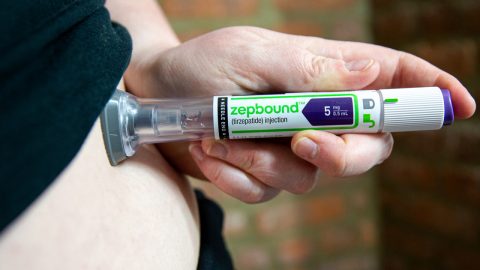
Some marijuana users may have elevated levels of lead and cadmium — two heavy metals linked to long-term health issues — in their blood and urine, a new study shows.
Among a group of more than 7,200 adults, the 358 who reported using marijuana within the past 30 days were found to have 27% higher blood lead levels than those who said they didn’t use either marijuana or tobacco.
The marijuana users also had 22% higher levels of cadmium in their blood, according to the research, which was published Wednesday in the journal Environmental Health Perspectives. Urine samples showed similar results.
The researchers, a team at Columbia University, knew going in that cannabis plants can absorb heavy metals from soil and, in fact, are particularly good at doing so. The contaminants travel through the stalk of the plant into the leaves and flowers.
But the new findings demonstrate that heavy metals in cannabis plants can also wind up in the human body.
There is no safe amount of lead exposure, since even low levels can slow children’s brain development and result in learning and behavioral problems. In adults, chronic exposure to lead increases the risk of high blood pressure, heart problems and kidney damage.
Cadmium, meanwhile, is considered a human carcinogen by the World Health Organization. Exposure to low levels, such as through tobacco smoke, may lead to kidney disease and fragile bones.
“For both cadmium and lead, these metals are likely to stay in the body for years, long after exposure ends,” said Tiffany Sanchez, an author of the study and an assistant professor of environmental health sciences at Columbia’s Mailman School of Public Health.
For their research, Sanchez and her team analyzed data from blood and urine samples collected between 2005 and 2018 as part of the National Health and Nutrition Examination Survey, a program conducted by the National Center for Health Statistics.
The data set didn’t distinguish between different ways participants consumed marijuana, such as edibles or joints. But generally speaking, Sanchez said, inhaling lead is worse than eating it in food.
“The absorption rate from inhalation is 100%,” she said.
Sanchez added that although tobacco is the main source of cadmium exposure in the general population, the study showed similar exposure levels among cannabis users.
Because of the piecemeal nature of marijuana laws — the substance is illegal at the federal level, legal for recreational use in 21 states, and permitted for medicinal use in 38 states — there are no standardized rules for contaminants like heavy metals.
As many as 28 states, however, regulate arsenic, cadmium, lead and mercury in marijuana products. So manufacturers there are required to test for these metals and make sure concentrations are below a designated limit.
But even then, Sanchez said, “each of the states where cannabis is legal sets their own levels of contaminants.”
And that’s just for legal marijuana products. Illegal sales continue even in states that have legalized the drug.
“I know people who have gone to New York who will just see a dispensary and think, ‘Oh, it’s legal here,'” said Jim Seaberg, assistant director of Drexel University’s Medical Cannabis Research Center, who was not involved in the new research. “But there are tons of illegal dispensaries popping up that are not regulated, that are not selling regulated, tested products.”
He said there are also no federal testing rules for hemp-derived products. A 2022 study found lead, mercury and several other heavy metals in e-cigarettes from hemp-derived CBD.
But states are getting better at screening for contaminants, Seaberg said. He noted that Sanchez’s study includes data from before many states had legalized marijuana.
The best way to tell whether a marijuana product is free of heavy metals, he said, is to buy it from a legal dispensary (state health department websites usually have a list). From there, he said, ask the dispensary staff for a certificate of analysis that shows that heavy metals aren’t present in a particular product.










Recent Comments